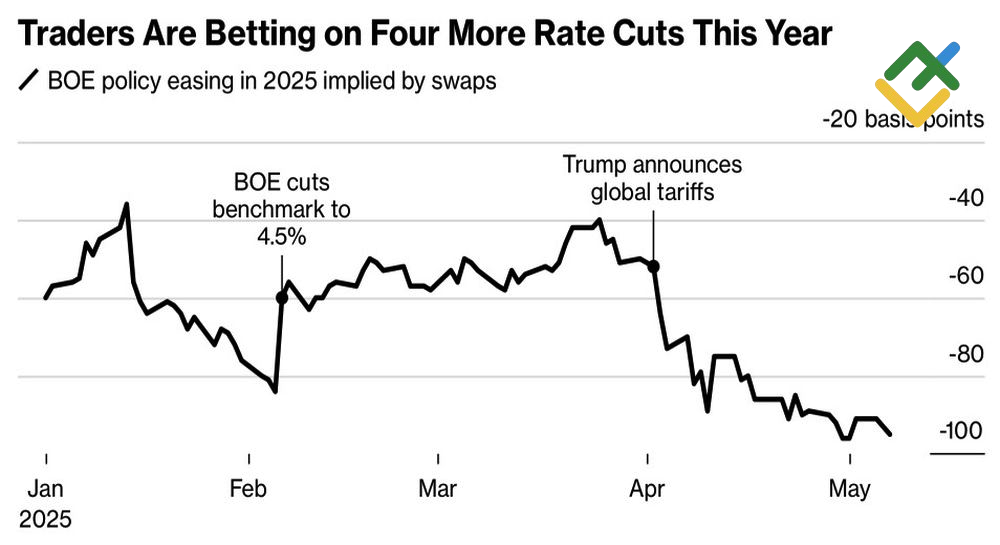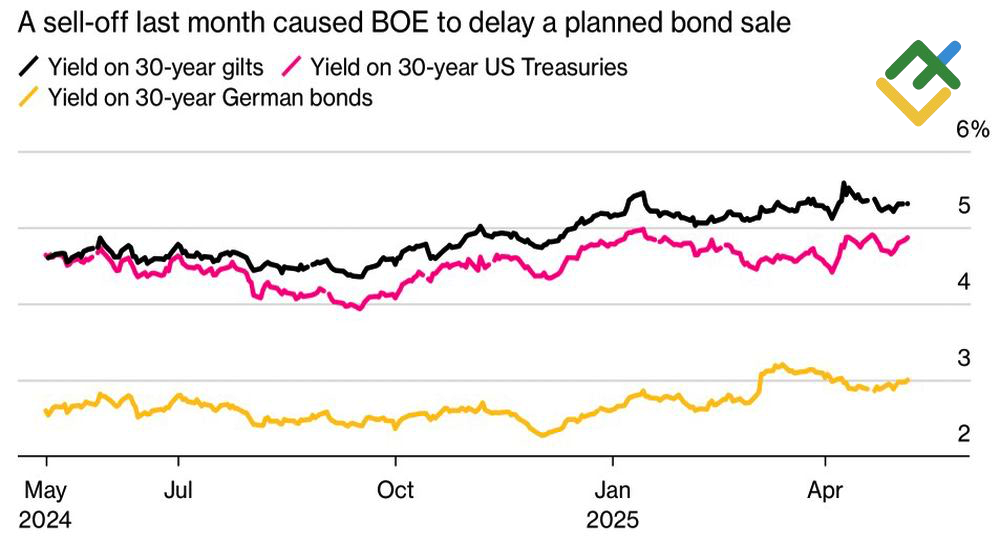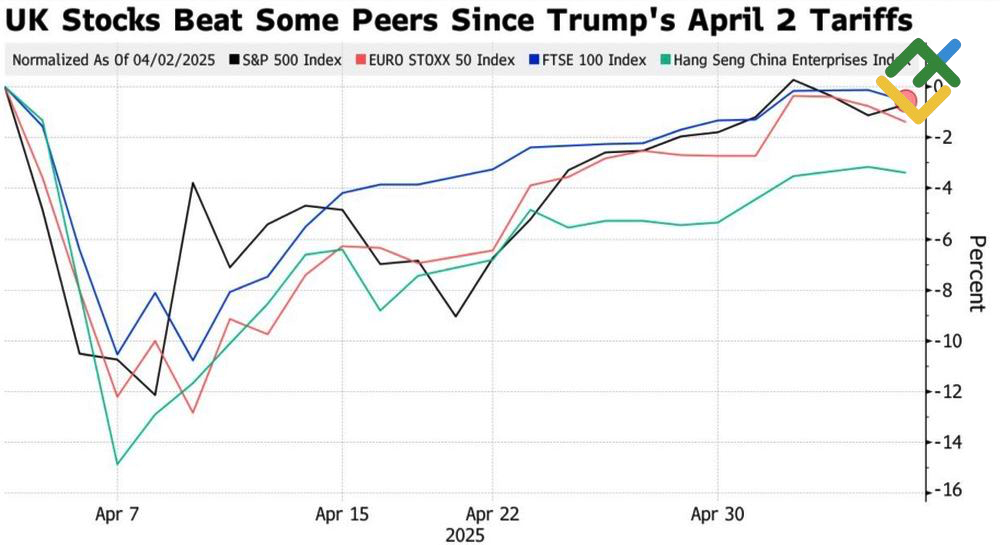
The deceleration of the UK economy, caused by US tariffs, is prompting the Bank of England to reduce interest rates. However, this is not the only issue affecting the GBPUSD pair. The revived US stock market is further unsettling GBPUSD bulls. Let’s discuss this topic and make a trading plan.
The article covers the following subjects:
Major Takeaways
- The Bank of England will slash its repo rate to 4.25%.
- The US and the UK have concluded a trade deal.
- The recovery of the S&P 500 index negatively affects the British pound.
- Consider short trades if the GBPUSD pair falls below 1.326.
Weekly Fundamental Forecast for Pound Sterling
Will the Bank of England focus on stimulating the economy or remain cautious amid the current trade uncertainty? All 32 Bloomberg experts predict a repo rate reduction from 4.5% to 4.25% at the May 8 meeting, with 20 of them anticipating that at least one MPC member will advocate for a 50-bps cut. The derivatives market aligns with this outlook, forecasting four rounds of monetary policy easing in 2025, including in May and June.
Bank of England Rate Expectations
Source: Bloomberg.
The Bank of England is unlikely to mirror the Fed’s decision, as the latter plans to maintain its pause in the monetary easing cycle. However, the two countries face different economic conditions. If the US attacks by raising tariffs, the UK is forced to defend itself. While the primary concern for the US is the risk of rising inflation, the UK faces the threat of a slowdown in GDP.
Unsurprisingly, divergences in economic growth and monetary policy are emerging, which theoretically may dump the GBPUSD pair. Indeed, UK bond yields are higher than US yields, but expectations of a repo rate cut are narrowing the differential, causing the British pound to retreat.
Bond Yield Performance
Source: Bloomberg.
If central banks defer to the US administration when deciding on rates, markets should do the same. Donald Trump’s announcement of a deal with a “big and highly respected country” is keeping the GBPUSD pair from plunging for now.
Trump’s statement is believed to refer to Britain. According to a Wall Street Journal insider, the unilateral 10% tariff will remain in effect, but the UK will be granted a 25% exemption on tariffs applied to aluminum, steel, and automobile imports. In return, the UK will reduce its digital services tax on American tech companies. As a result, the agreement will ease pressure on British exporters in the finance, energy, and automotive sectors.
Will this development affect the pound sterling? The initial momentum following the news seems to have faded, and the FTSE 100’s gains have lost steam. Recently, the UK stock index has been underperforming the S&P 500 index. If this trend continues, the GBPUSD pair will likely face a correction.
Stock Indices Trends
Source: Bloomberg.
As long as Forex exchange rates are tied to capital flows, which are mainly swayed by US protectionism rather than monetary policy, the ongoing surge in the US stock market puts pressure on the British pound against the US dollar.
Weekly GBPUSD Trading Plan
If the GBPUSD pair plunges below the support of 1.326, one may consider short-term selling. However, the cooling of the US economy and the increasing likelihood of the Fed resuming its rate cut cycle will sooner or later resume the upward trend in the pair. This indicates that the pair’s potential for a deeper correction is limited.
This forecast is based on the analysis of fundamental factors, including official statements from financial institutions and regulators, various geopolitical and economic developments, and statistical data. Historical market data are also considered.
Price chart of GBPUSD in real time mode
The content of this article reflects the author’s opinion and does not necessarily reflect the official position of LiteFinance broker. The material published on this page is provided for informational purposes only and should not be considered as the provision of investment advice for the purposes of Directive 2014/65/EU.
According to copyright law, this article is considered intellectual property, which includes a prohibition on copying and distributing it without consent.
{{value}} ( {{count}} {{title}} )
This post is originally published on LITEFINANCE.






